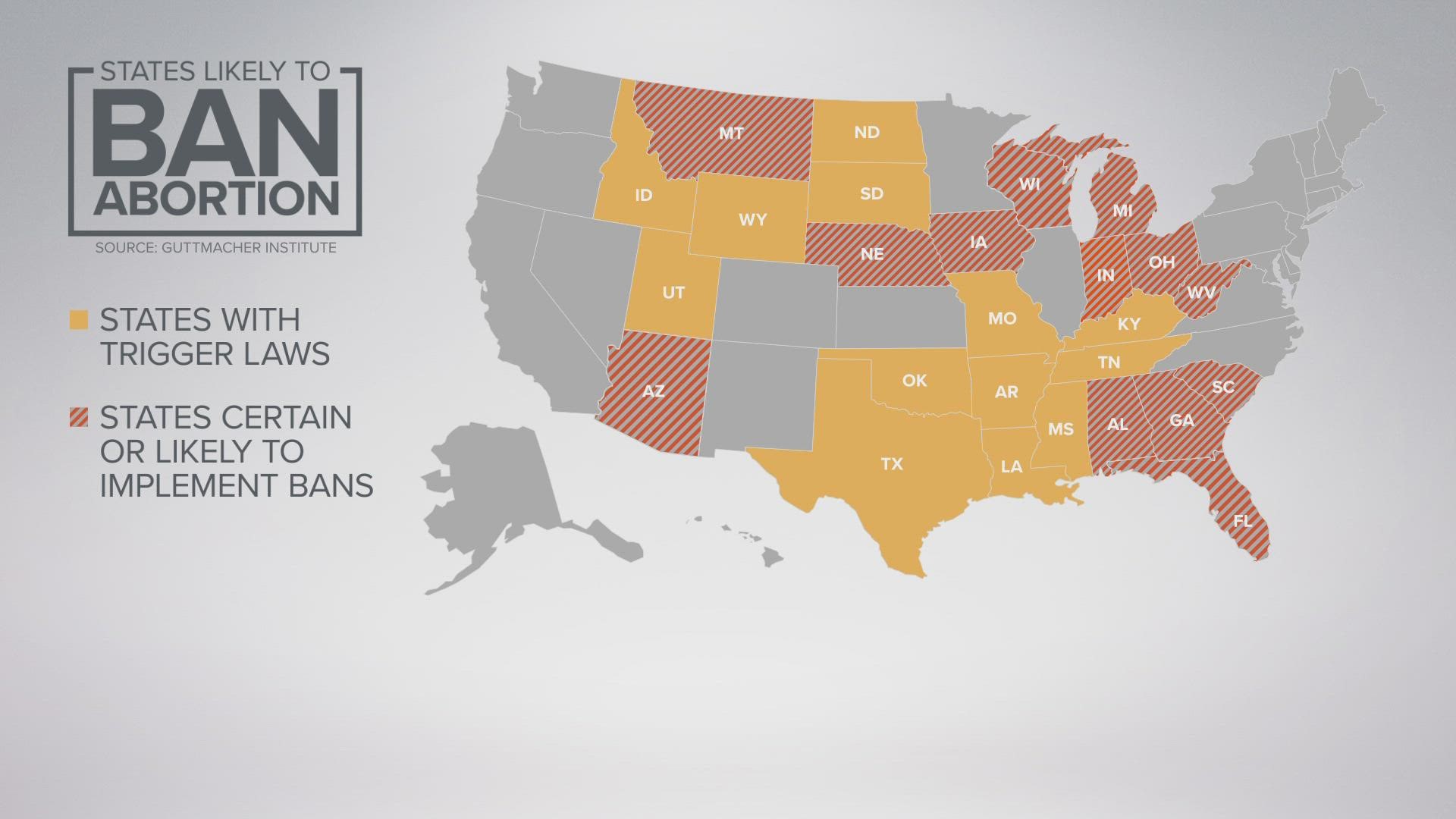NASHVILLE, Tenn. — Tennessee's Attorney General said Tuesday that he formally started the 30-day countdown until the state's trigger law effectively banning providers from giving abortion treatments goes into effect.
He said the U.S. Supreme Court officially issued a judgment in Dobbs v. Jackson Women's Health Organization on June 24, which overturned abortion access rights established in Roe v. Wade. After they filed the judgment, he notified the Tennessee Code Commission in a letter.
The Human Life Protection Act will take effect in Tennessee on August 25, 2022.
The state legislature passed the law in 2019, which makes providing abortion treatments a felony in the state. Since it would be a felony, starting Aug. 25, people who give abortion treatments could lose voting rights and face several other consequences, including fines or prison time.
It also specifically does not try to punish women who receive abortion treatments. It allows abortion treatments if the mother's life would be at risk, but specifically excludes cases where a provider treats someone by giving them an abortion because they could attempt to kill themselves. Abortions in those cases would be illegal.
The law is also different from the state's "Heartbeat Bill," which creates additional restrictions on abortion treatments. That law went into effect Tuesday and makes abortion treatments illegal six weeks after gestational age if a fetus has cardiac activity. It also outright bans treatments after eight weeks of gestational age.
Earlier in the week, some state lawmakers raised an alarm that the ban does not provide exceptions for victims of rape or incest. If they get pregnant due to those crimes, they may need to either carry the fetus to term or leave the state for abortion treatments.
Democratic lawmakers said they plan on introducing several bills during the next legislative session to expand the list of exemptions under the trigger law, as well as adding patient-doctor privacy protections for telehealth care.
Republican Sen. Rusty Crowe, chairman of the Senate Health and Welfare Committee, told a legislative panel last week that he thinks the statute should be tweaked to prevent confusion inside the medical community.
"I will say as chairman of health, I am getting some communications from totally different groups... that do think we probably should fine-tune the trigger bill somewhat to make sure that we don’t get our docs in trouble when they’re trying to follow the law," Crowe said, who was a co-sponsor of the legislation when it cleared the state House in 2019.
On Monday, a spokesperson for Senate Speaker Randy McNally — the top Republican of the chamber — said the Republican “currently sees no issue with the trigger law going into effect as it was passed three years ago."

